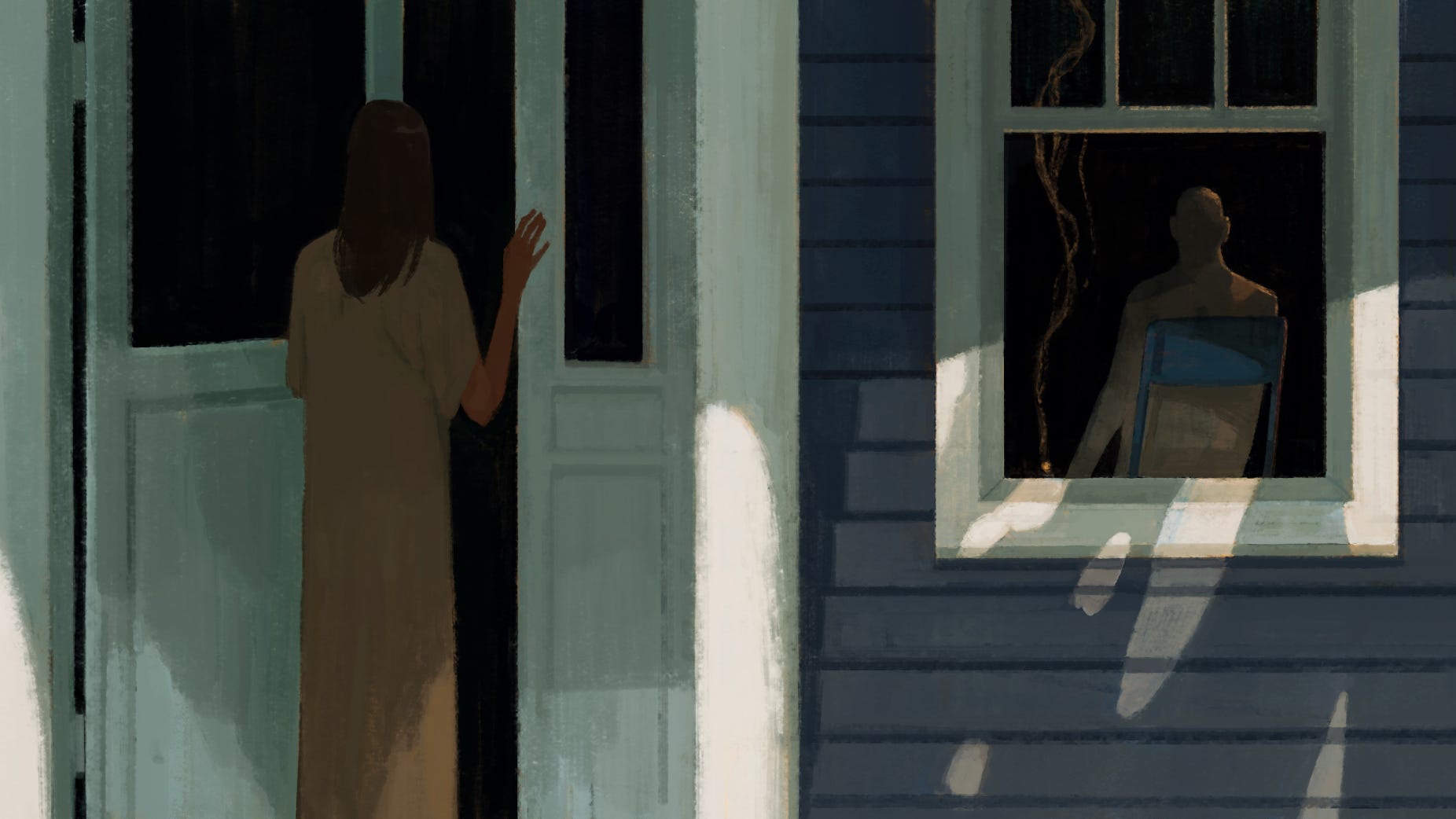For Decades, Shame Kept My Dad’s Schizophrenia Secret from our Pakistani Immigrant Community
Now my concern for the mental health of my children is making me finally face my family’s past.

Illustrations by Hokyoung Kim
Daddy sat in the rickety metal folding chair, his eyes hidden by the dark sunglasses he had taken to wearing day and night. During the day, I would tell myself it was to shield himself from the uneven sunlight that would shine into the living room. At night, however, the sunglasses protected us. He wasn’t violent. There were no flying fists or abusive shouts coming from our two-bedroom apartment. Not like some of the Pakistani immigrant families we knew in our community, in which the fathers would assuage their sorrows and humiliations by leaving a trail of tears and cowered silences where their children once played. No, the sunglasses shielded us from his stare, unrelenting, shadowed, looking out into space as if he was seeing another life play out. His cigarette made a slow glowing arc from the glass ashtray on the folding table to his mouth, hidden behind the curling gray smoke.
“I think it’s pretty, the way Daddy’s hands glow and the smoke climbs in to…
Keep reading with a 7-day free trial
Subscribe to Narratively to keep reading this post and get 7 days of free access to the full post archives.


